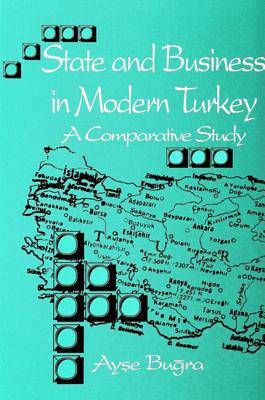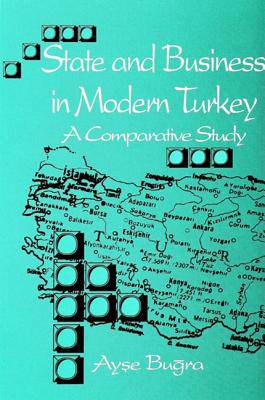
Bedankt voor het vertrouwen het afgelopen jaar! Om jou te bedanken bieden we GRATIS verzending (in België) aan op alles gedurende de hele maand januari.
- Afhalen na 1 uur in een winkel met voorraad
- Gratis thuislevering in België
- Ruim aanbod met 7 miljoen producten
Bedankt voor het vertrouwen het afgelopen jaar! Om jou te bedanken bieden we GRATIS verzending (in België) aan op alles gedurende de hele maand januari.
- Afhalen na 1 uur in een winkel met voorraad
- Gratis thuislevering in België
- Ruim aanbod met 7 miljoen producten
Zoeken
Omschrijving
This book analyzes the factors that shape business activity in Republican Turkey and examines the presence of some of these factors in other societies with highly different cultures and histories. Bugra's premise is that neither the institutional framework nor the behavioral regularities of a market economy emerge spontaneously following principles of a universally rational behavior. Rather, these reflect societal characteristics to be shaped by policy measures that ensure the smooth functioning of the market mechanism. The author investigates the sociopolitical context of Turkish entrepreneurship by looking at the development of the private sector in the Republican period; policy process under successive Republican governments; socially defined features of the holding company, the typical big-business unit; and the nature of business associations in Turkey. Her analysis is relevant both to the study of business organization and to the study of structural change in late-industrializing countries and former socialist societies where the shortcomings of standard economic approaches are clear.
Specificaties
Betrokkenen
- Auteur(s):
- Uitgeverij:
Inhoud
- Aantal bladzijden:
- 328
- Taal:
- Engels
- Reeks:
Eigenschappen
- Productcode (EAN):
- 9780791417874
- Verschijningsdatum:
- 24/02/1994
- Uitvoering:
- Hardcover
- Formaat:
- Genaaid
- Gewicht:
- 625 g

Alleen bij Standaard Boekhandel
+ 290 punten op je klantenkaart van Standaard Boekhandel
Beoordelingen
We publiceren alleen reviews die voldoen aan de voorwaarden voor reviews. Bekijk onze voorwaarden voor reviews.












